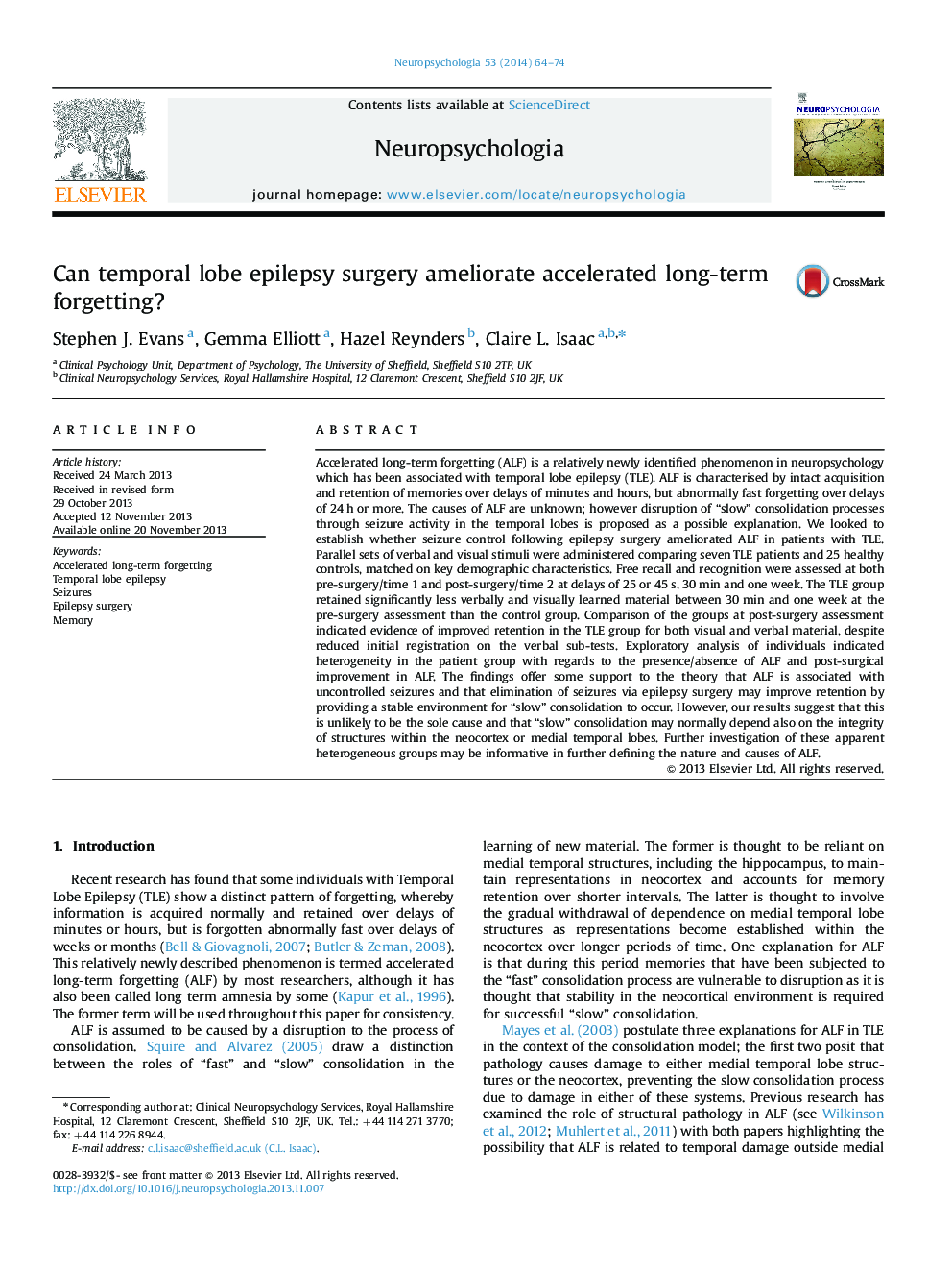| Article ID | Journal | Published Year | Pages | File Type |
|---|---|---|---|---|
| 7321914 | Neuropsychologia | 2014 | 11 Pages |
Abstract
Accelerated long-term forgetting (ALF) is a relatively newly identified phenomenon in neuropsychology which has been associated with temporal lobe epilepsy (TLE). ALF is characterised by intact acquisition and retention of memories over delays of minutes and hours, but abnormally fast forgetting over delays of 24Â h or more. The causes of ALF are unknown; however disruption of “slow” consolidation processes through seizure activity in the temporal lobes is proposed as a possible explanation. We looked to establish whether seizure control following epilepsy surgery ameliorated ALF in patients with TLE. Parallel sets of verbal and visual stimuli were administered comparing seven TLE patients and 25 healthy controls, matched on key demographic characteristics. Free recall and recognition were assessed at both pre-surgery/time 1 and post-surgery/time 2 at delays of 25 or 45Â s, 30Â min and one week. The TLE group retained significantly less verbally and visually learned material between 30Â min and one week at the pre-surgery assessment than the control group. Comparison of the groups at post-surgery assessment indicated evidence of improved retention in the TLE group for both visual and verbal material, despite reduced initial registration on the verbal sub-tests. Exploratory analysis of individuals indicated heterogeneity in the patient group with regards to the presence/absence of ALF and post-surgical improvement in ALF. The findings offer some support to the theory that ALF is associated with uncontrolled seizures and that elimination of seizures via epilepsy surgery may improve retention by providing a stable environment for “slow” consolidation to occur. However, our results suggest that this is unlikely to be the sole cause and that “slow” consolidation may normally depend also on the integrity of structures within the neocortex or medial temporal lobes. Further investigation of these apparent heterogeneous groups may be informative in further defining the nature and causes of ALF.
Related Topics
Life Sciences
Neuroscience
Behavioral Neuroscience
Authors
Stephen J. Evans, Gemma Elliott, Hazel Reynders, Claire L. Isaac,
